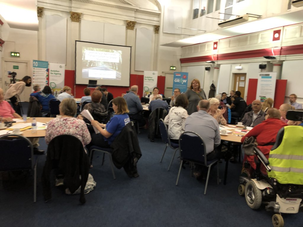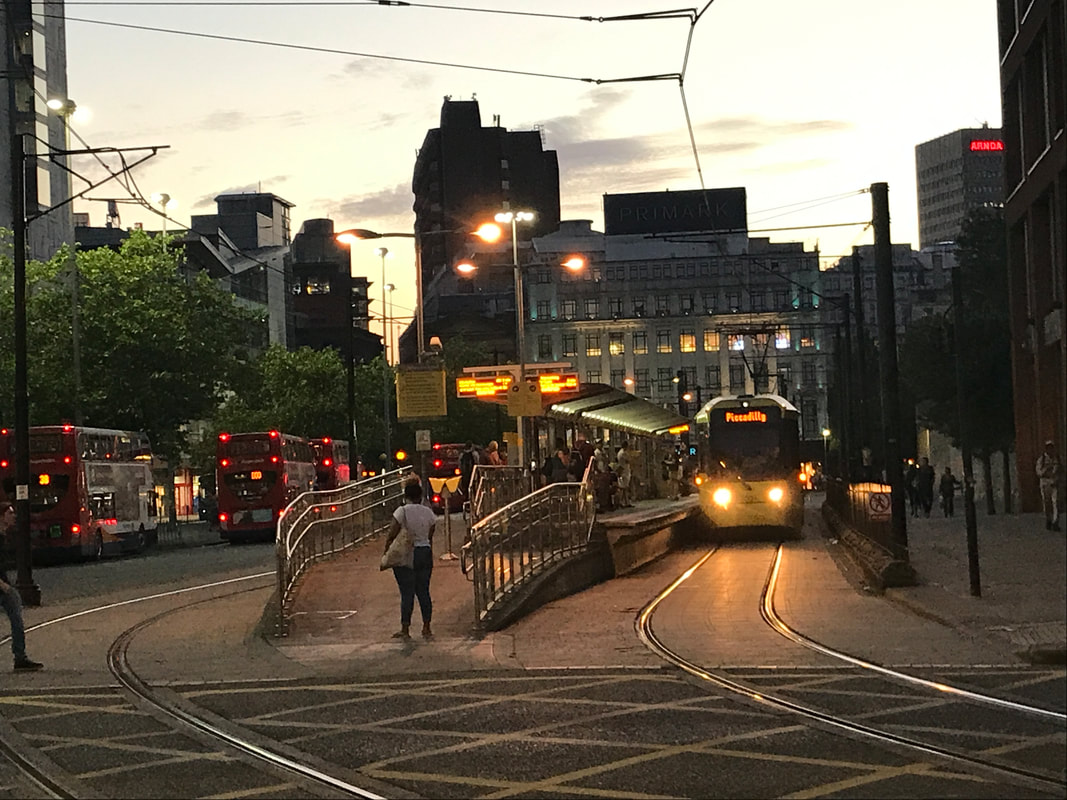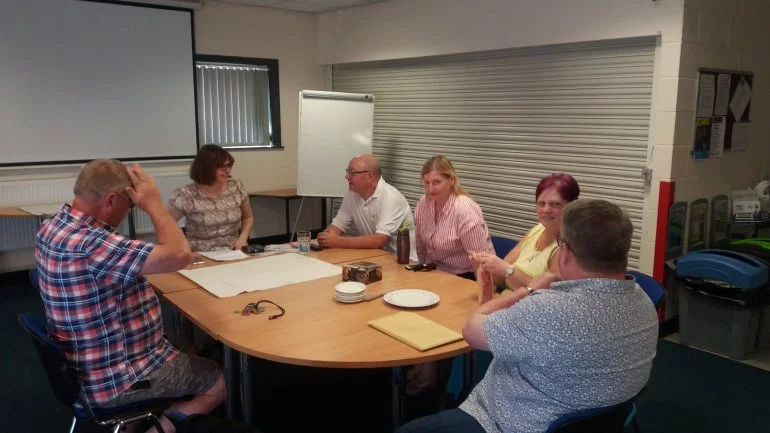- Home
-
Research Projects
- Community Hubs for Healthy Ageing (CHHA) Project
- A model of mobility capital for an ageing population
- Importance of a view from a window
- Age Friendly Railways
- Crossing the road in later life
- A model of an age friendly transport system
- Older people's travel and mobility needs
- Older driver safety
- Giving-up driving in later life
- A convivial public realm for older people
- Technological innovations and new mobilties: Attitudes and values of older people.
- Age Friendly Transport in Greater Manchester
- Other projects
- About me
- My PhD students
- Media Work
- Presentations
- Store

- The Greater Manchester area is home to 365,000 people over 70 – around 15% of the population. It has a higher than average amount of deprivation, 36% of Greater Manchester population live in 20% of UKs most deprived neighbourhoods. Travel patterns are similar for other large cities for older people, a gradual reduction in driving with ageing and an increase in walking and using the bus. There is a slightly higher than average use of buses compared to other similar size municipalities and the local tram, network offers another public transport dimension.
Walking (in order of priority of importance and commonality):
- Poor quality pavements. – poor upkeep and maintenance were noted with a risk of falls.
- Obstructions on pavements – including parked cars, cyclists and mobility scooters, as a participant in Oldham noted there was so many “near misses you know, terrible, police don’t do anything about it, turning pavements into roads”.
- Pedestrian crossings – length of time given to cross was seen as too short and crossings often placed in wrong place or being too wide or having to cross more than one road to get to the other side and with a lack of dropped kerbs and issues with blistered paving.
- Speeding traffic near to pedestrian area – making it unpleasant, dangerous and difficult to cross
- Lack of benches and toilets
- Poor street lighting (especially an issue in Wigan)
- Pollution (especially an issue in Wigan)
- Bus driver’s lack of awareness of older people’s issues – especially drivers driving off before the person had sat down was constantly stressed as an issue, as a participant in Wigan noted, “Some drivers can’t wait for you to get in the bus and they’re going…for me it’s intimidating. You’re frightened of falling” and drivers not being sympathetic to older people struggling with their pass or with bags and not stopping close enough to the kerb for people to easily board and alight.
- Generally just a poor bus service - including the bus stop being poorly cited not close to residential areas (esp Wigan and Oldham) or the bottom of hills (esp Wigan) and unreliability of service (esp. Oldham) and difficulty swapping between buses with different operators (all areas).
- Poor quality bus stops – poor signage and information (esp. Oldham and Bolton) and lack of seating.
- Poor quality buses themselves e.g. not working drop down mechanisms and lack of grab rails on the bus.
- Using the free bus pass before 9:30am - especially for hospital and doctor appointments which could often be put first thing in the morning.
Railway service. Highest priority area was lack of help, tickets being confusing and not getting a seat. More minor priorities were accessibility at railway stations and cleanliness of trains.
Policy. Not being involved in decisions affecting transport was frequently noted. Coupled with this was feeding back, including lack of confidence in reporting and time taken to make any changes. Another issue noted, as often stressed by Manchester’s Mayor Andy Burnham, is the lack of investment in areas, like Greater Manchester, in comparison to London.
The final recommendations include:
- Recommendation 1: Staff working in transport to be trained in older people’s issues. It was clearly evident that people could make or break a journey for older people. Having well trained staff at stations, as bus or taxi drivers, who were well aware of older people’s issues and sympathetic and helpful would really help improve mobility for older people.
- Recommendation 2: Getting more older people involved in transport planning and design. Older people wanted much more say in transport decisions being made and had some excellent suggestions for transport improvement themselves
- Recommendation 3: That other sectors, such as health, should also have responsibility for transport issues. It isn’t always just changing transport, but also about involving other players in this, for example local health boards. For example, situating mega-hospitals at the edge of town or city centres, agglomerating a lot of the old primary and secondary care facilities under one roof, can save costs and improve cross department working for health staff.
- Recommendation 4: Community resources and support. There is a role the local community can play in enabling older people to get out and about. Support through businesses, cafes and other buildings opening their doors so people can take a seat or use the toilet can be very beneficial for older people wanting to get out and about.
- Recommendation 5: Demonstrator communities. It is suggested that funds be established for demonstrator projects that help overcome some of the issues identified in the workshops. Two immediate demonstrators could be piloted; (1) increasing time for older people at crossings e.g Singapore Card Scheme. or the Neatebox Button. (2) audio-visual bus stop information e.g City Verve talkative bus concept, .or the Trapeze group’s Talking App.
Towards an age friendly transport system in Greater Manchester
Report:
Musselwhite, C.B.A. (2018) Age Friendly Transport for Greater Manchester. Report for Transport for Greater Manchester, Greater Manchester Ageing Hub at Greater Manchester Combined Authority and Centre for Ageing Better with support from Ambition for Ageing at GMCVO, 4th September. Blog
Journal article:
Musselwhite, C.B.A. (2021). Prioritising transport barriers and enablers to mobility in later life: A case study from Greater Manchester in the United Kingdom, Journal of Transport and Health, 22, 10185.
Presentations:
September 2021: Co-producing an action plan on transport and mobility for older people: A case study from Greater Manchester, UK. Key notre speech. GREENSAM conference, Moving Closer to age-friendly green mobility. Online, 8th September.
October 2019: Collaborating for success in grant applications. Working with the Third Sector Invited presentation for the Research collaboration on a bid workshop at the Health and Care Research Wales conference 2019, Sophia Gardens, Cardiff, UK. 3rd October.
February 2019: Age friendly transport solutions: A case study in Greater Manchester. Ageing Differently, Age Friendly Greater Manchester annual conference, February 13th
June 2018: Towards an age friendly transport system, Ambition for Ageing seminar, St Thomas Centre, Ardwick Green North, Manchester, 20th June
Poster
Age friendly transport system for Greater Manchester


